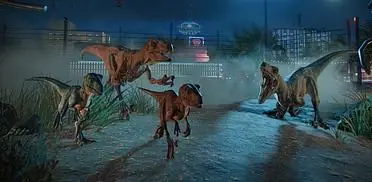To answer that question, Runemaster wants you to play through a series of semi-randomly generated RPG campaigns with turn-based combat interludes. It walks like Diablo, but it quacks 100% fantasy X-Com.
 |
| The master of runes, going about his business |
In beginning any game, your first decision is to choose a character from one of six races and three classes (Humans, Dwarves, Troll, Giants, and two types of elves all feature), before you’re dropped into one of six zones themed according to your selection. The lands themselves are set to be procedurally generated for each new character, and while the quest dialogue and visual perspective remains fixed, key locations and objectives will be shifted according to the randomly-allocated terrain.
The world we initially begin with as our Human Skald (primarily a magic-dealer) is a verdant forest, although later in the demo we’re transported between hell dimensions and back. You’re free to wander in any direction as you please, chatting merrily to townsfolk, picking up quests and navigating through lengthy dialogue trees that serve to colour in backstory and give opportunities for your character to take shape.
Although Runemaster does everything it can to swathe its morality-meter in mud-caked cloaks of grey, each one of those dialogue selections is counting towards your path of evil or good. Some will result in favour with Loki, some will favour Thor, and it’s your actions in taking questlines, siding with specific characters or murdering townsfolk that’ll determine which of the gods you get to throw down against at the end. There are no set paths, and it’s up to you to find your own way.
Perhaps more interestingly, there are elements of chance and procedural generation to Runemaster’s questing system too.
 |
| Diablo be thy name |
Large beasts and other encounters are either placed in the world or not, and completing them in different ways can spawn further additional questlines or consequences that other players simply might not see on their run through the same zone. The example the team was keen to show at Gamescom was a fight with a giant spider; it could either be present in your land or entirely absent, and on defeat could trigger an infestation of smaller creatures at a nearby town, which could lead to a further questline once dealt with. Character stats are also tossed into the procedural soup, with the game spawning specific tasks and objectives to suit your build.
Combat, on the other hand, is a lot more easy to digest.
Jumping into a battle warps the action to a grid-lined, turn-based battlefield. Your party is more of an army of followers than a rag-tag group of individuals. They can be arranged into squadrons of three or less, and arranged in formation either immediately before each encounter or from the game’s menu at any point. Your main character can inhabit an extra slot on any of those units to confer a suitable bonus, and there was talk of other items being available to infer perks on the rest of your troops. Experience carries over, so keeping your warriors alive is very much a focus.
 |
| Shades of Torchlight |
It was easily digestible stuff. Terrain, cover, combat range and movement points need to be carefully considered and planned, while the resulting combat animations were perfunctory and functional. All that could change of course, and as the majority of any turn-based strategy game hinges on convincingly tough AI and a lack of cheap game-winning abilities, Runemaster’s particular blend of fantasy dice-rolling will have to be sampled at a later date, although there were no immediate causes for alarm at this early stage.
Although it’s nigh-on impossible to place any subjective opinion on a 30-minute hands-off demo at a venue such as Gamescom, what I saw of Runemaster was certainly promising. Its dual-fate, good-vs-evil storyline might not be the most original concept in the world, but the attempt at procedural generation within its world and questlines are what really intrigue. The resulting cocktail of RPG and strategy elements will be difficult to balance, but the potential is there for something just a little different. That alone makes it worth watching.




